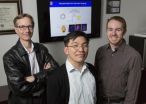(Press-News.org) People who drive BMWs and wear expensive suits must surely occupy roles of power and authority. According to a new study in the Journal of Consumer Research, when we can separate societal expectations of power from how power makes us feel, we have better control over what it means to be powerful.
"When a person is placed into a powerless or powerful role, they sometimes conform to the expectations of that role. But when they are focused on the internal feeling of having or lacking power, we observed the opposite patterns of behavior," write authors Derek D. Rucker (Kellogg School of Management, Northwestern University), Miao Hu (University of Hawaii at Manoa), and Adam D. Galinsky (Columbia University).
The authors studied how a person's perception of power could hinge on what they are focused on at the time. That is, when a person is focused on how an experience of power makes them feel, they should respond based on those feelings. Conversely, when they are focused on the expected behavior associated with being powerless or powerful, people should respond based on those feelings.
The authors studied the impact of power on participants' feelings. When participants were made to focus on what was expected of them (for example, their role within a company), they were more likely to purchase status-signaling products like a BMW. When asked to focus on the internal feelings of having or lacking power, the researchers found that only the participants who felt powerful were likely to purchase similar items.
These results provide insight for brands selling luxury items to consumers in powerful roles. Such brands may consider emphasizing social expectations and roles at work. In contrast, when promoting status-signaling products to powerless consumers, brands might consider suggesting how high-status products can compensate for their lack of power. "For consumers, the current research helps us better understand the psychological drivers behind our preferences and purchase decisions," the authors conclude.
INFORMATION:
Derek D. Rucker, Miao Hu, and Adam D. Galinsky. "The Experience versus the Expectations of Power: A Recipe for Altering the Effects of Power on Behavior." Journal of Consumer Research: August 2014. For more information, contact Derek Rucker or visit http://ejcr.org/.
Buying a BMW: How do social expectations influence your purchases?
2014-05-21
ELSE PRESS RELEASES FROM THIS DATE:
What makes things cool? When breaking the rules can boost your cool factor
2014-05-21
Coolness helps sell everything from fashion and music to electronics and cigarettes. According to a new study in the Journal of Consumer Research, people and brands become cool by understanding what is considered normal, obeying the rules considered necessary, and then diverging from the rules considered expendable.
"Our research explores how brands and people become cool in the eyes of consumers. We reasoned that brands could become cool by breaking rules that seemed unnecessary or unfair, but not by breaking legitimate rules," write authors Caleb Warren (Texas A&M University) ...
The brand tourism effect: When do lower status consumers boost luxury brands?
2014-05-21
When people purchase luxury items like expensive watches and high-end automobiles, they often consider themselves members of a select group of consumers. According to a new study in the Journal of Consumer Research, when outsiders show an interest in a luxury brand, they help improve its overall value.
"Just as tourists boost the pride of citizens toward their home country and reinforce the attractiveness and desirability of the place they visit, brand tourists (as fans of the brand) inspire feelings of membership pride and enhance brand image," write authors Silvia Bellezza ...
Admitting our faults: When does self-acceptance trump self-destruction?
2014-05-21
When face-to-face with our failures, it's hard not to deny the consequences of our shortcomings—and sometimes we make problems worse by engaging in the behaviors we have been trying so hard to avoid. According to a new study in the Journal of Consumer Research, practicing self-acceptance may be the best way to boost our self-worth and avoid self-deprecating behaviors and consequences.
"Consider the person who has just realized that they are poorly prepared financially for retirement," write authors Soo Kim and David Gal (both Kellogg School of Management, Northwestern ...
Partners in crime: When do friends conspire to eat more chocolate?
2014-05-21
As a human race we strive for perfection, knowing that no one is perfect. A new study in the Journal of Consumer Research offers insight into why we surround ourselves with people who help bring out our best but don't make us feel terrible when we stray from perfection.
"In a situation requiring two people to use self-control, either both indulge, both abstain, or one indulges while the other abstains. Our research looks at how these different outcomes impact people who are friends," write authors Michael L. Lowe (Texas A&M University) and Kelly L. Haws (Vanderbilt University).
In ...
Shopping online: Why do too many photos confuse consumers?
2014-05-21
When shopping online, we often have the option of clicking on additional product photos taken from different angles or showing additional features. According to a new study in the Journal of Consumer Research, looking at more photos when making product comparisons can ultimately inhibit us from noticing what differentiates them in the first place.
"The intuition that 'seeing more is always better' does not consider the possibility that when presented with too many product photos, the way we process information is altered," write authors Jayson Shi Jia (University of ...
UNC researchers find new target for chronic pain treatment
2014-05-21
CHAPEL HILL, N.C. (May 21, 2014) – Researchers at the UNC School of Medicine have found a new target for treating chronic pain: an enzyme called PIP5K1C. In a paper published today in the journal Neuron, a team of researchers led by Mark Zylka, PhD, Associate Professor of Cell Biology and Physiology, shows that PIP5K1C controls the activity of cellular receptors that signal pain.
By reducing the level of the enzyme, researchers showed that the levels of a crucial lipid called PIP2 in pain-sensing neurons is also lessened, thus decreasing pain.
They also found a compound ...
Cancer avatars for personalized medicine
2014-05-21
Researchers at University of California, San Diego School of Medicine and Moores Cancer Center have used computer simulations of cancer cells – cancer avatars – to identify drugs most likely to kill cancer cells isolated from patients' brain tumors.
The findings, published in May 21 online issue of the Journal of Translational Medicine, may help researchers stratify cancer patients for clinical trials according to their cancers' genomic signatures and predicted sensitivities to different cancer drugs.
Such an approach would allow scientists to selectively test cancer ...
Rhythmic bursts of electrical activity from cells in ear teach brain how to hear
2014-05-21
PITTSBURGH, May 21, 2014 – A precise rhythm of electrical impulses transmitted from cells in the inner ear coaches the brain how to hear, according to a new study led by researchers at the University of Pittsburgh School of Medicine. They report the first evidence of this developmental process today in the online version of Neuron.
The ear generates spontaneous electrical activity to trigger a response in the brain before hearing actually begins, said senior investigator Karl Kandler, Ph.D., professor of otolaryngology and neurobiology, Pitt School of Medicine. These patterned ...
NIH Pain Consortium's first pain care curriculum improves clinical skills
2014-05-21
An online training module designed for the evaluation and care of chronic pain greatly improved medical student clinical skills, according to a report in the Journal of the American Geriatrics Society. The module, built by the University of Pittsburgh and using an elderly woman with chronic lower back pain as a case study, is the first curriculum resource created through the efforts of the National Institutes of Health Pain Consortium's Centers of Excellence in Pain Education program (CoEPEs). The program was developed in response to the Affordable Care Act's mandate to ...
Illinois researchers combine weak chemical forces to strengthen novel imaging technology
2014-05-21
When University of Illinois Associate Professor of Chemical and Biomolecular Engineering Hyunjoon Kong, graduate student Cartney Smith, and colleagues set out to improve MR imaging (MRI), they turned current contrast agent technology on its head—or rather, they turned it inside out. The new compound they designed in collaboration with Illinois' Roger Adams Professor of Chemistry Steven C. Zimmerman is not only more effective, but also self-assembling. Kong is also a member of the Regenerative Biology and Tissue Engineering research theme at the Institute for Genomic Biology.
When ...


